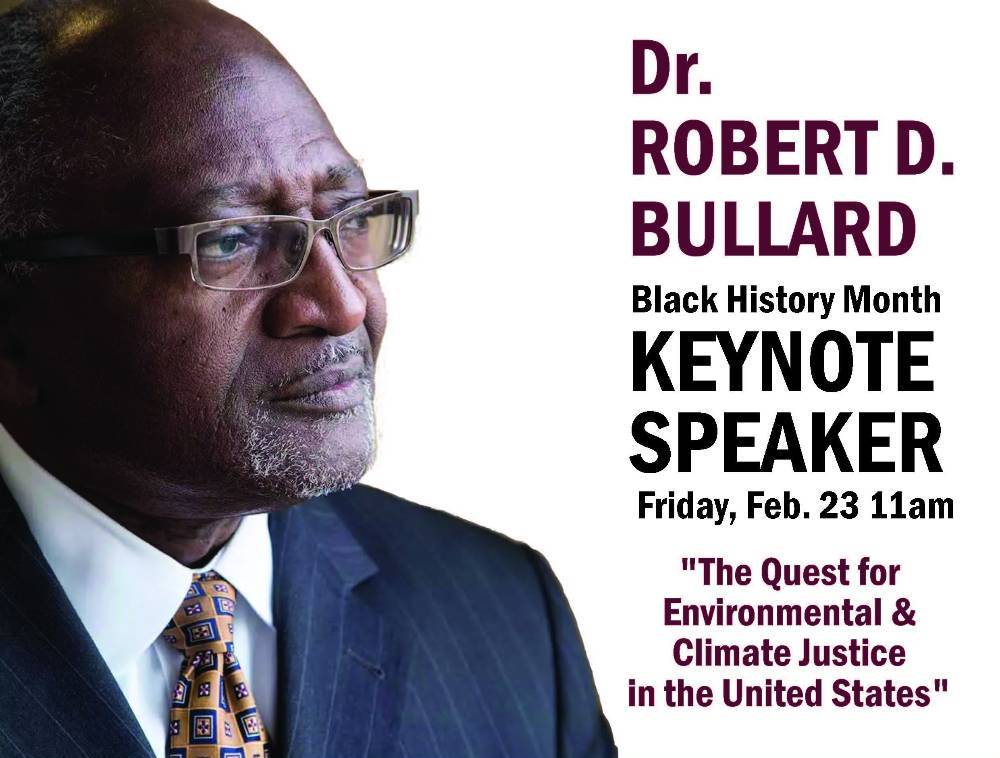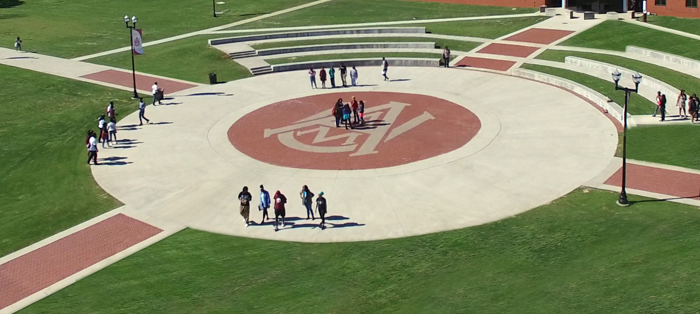2024 Urban Planning Conference
2024 Urban Planning Conference
Alabama A&M University
Friday, February 23, 2024
8:00 A.M. – 3:15 P.M
ARC Auditorium
Huntsville, AL 35811
Climate Change Planning and the Questions of Environmental Justice
The Department of Community & Regional Planning (DCRP) at Alabama A&M University (AAMU) will host the 2024 Urban Planning Conference on Friday, February 23, in the Agricultural Research Center (ARC). Sessions will run from 8:00 a.m. to 3:15 p.m.
This year’s conference theme is “Climate Change Planning and the Questions of Environmental Justice” and will focus on research, practice, and policy development that address the challenges of environmental justice in the delivery of climate change-related solutions. How does planning change its tools, strategies, and foci to build a broader, more inclusive, and affordable system of remedy?
As we look into the future, global challenges to justice present opportunities for innovative, informed, and reflective planning practices. How communities respond to the climate crisis is increasingly in search of implementable strategies and economic remedies. Because of the reality of impacts affecting lives, health, housing and property, climate change is no longer an esoteric discussion. It is also clear that the current pattern of attention and how questions are framed shows socio-economic inequity and spatial disparity. Poor people and poor people of color are not only losing lives and assets, they are facing multiple occurrences of this loss due to issues planning is charged to address.
This year's conference will focus on research, practice, and experiential planning practices that address the challenges of environmental justice, social justice, and spatial justice.
Two types of registration are available:
- Standard Registration - Cost is $25.00. This registration is for all attendees who are not currently students, staff or faculty members at AAMU.
- AAMU Student, Faculty, and Staff Registration - Free. This registration is AAMU students, faculty and staff. Be sure to include your A-number.
Registration and payment link: https://forms.gle/BC8tX8Xnno2avhTdA
Direct any questions to Dr. Deden Rukmana, deden.rukmana@aamu.edu, Department of Community and Regional Planning at Alabama A&M University.
Call for Abstracts
Keynote Speaker
The Department of Community & Regional Planning (DCRP) at Alabama A&M University (AAMU) proudly presents Dr. Robert D. Bullard, a distinguished professor of urban planning and environmental policy and founding director of the Bullard Center for Environmental and Climate Justice at Texas Southern University, as the keynote speaker for the 2024 Urban Planning Conference at Alabama A&M University. He will present a lecture titled “The Quest for Environmental and Climate Justice in the United States”.
America is segregated, and so is pollution. Historically, people of color communities in the United States have borne a disproportionate burden of pollution created by others, including pollution from highway traffic, landfills, garbage dumps, incinerators, refineries, chemical plants and a host of other polluting facilities. Climate change is the number one environmental justice, human rights and public health threat of the twenty-first century. The most vulnerable populations in the United States and around the world will suffer the earliest and most damaging setbacks because of where they live, their limited income and economic means, and their lack of access to health care. Climate-sensitive hazards are forecast to increase in the coming years. However, not all of the populations residing within these hazard zones have the same capacity to prepare for, respond to, cope with, and rebound from disaster events. Professor Bullard’s presentation will focus primarily on the U.S. and the need for empowering vulnerable populations, identifying environmental justice and climate change “hot-spot” zones and designing fair, just and effective adaptation, mitigation, emergency management and community resilience and disaster recovery strategies. He will also discuss his book, The Wrong Complexion for Protection, which analyzes more than eight decades of government response to natural and human-made disasters. Finally, Dr. Bullard will offer strategies to dismantle institutional policies and practices that create, exacerbate and perpetuate inequality and vulnerability before and after disasters strike.

Dr. Robert D. Bullard is distinguished professor of urban planning and environmental
policy and foundingdirector of the Bullard Center for Environmental and Climate Justice
at Texas Southern University. He isco-founder of the HBCU Climate Change Consortium
and the National Black Environmental Justice Network. He received his B.S. degree
from Alabama A&M University, M.A. degree from Atlanta University and Ph.D.
degree from lowa State University. Professor Bullard is often called the "father of
environmental justice." He is the author of 18 books. His latest book is The Wrong
Complexion for Protection: How the Government Response to Disaster Endangers African
American Communities (2023). In 2008, Newsweek named him one of "13 Environmental
Leaders of the Century."
In 2019, Apolitical named him one of the world's 100 Most Influential People in Climate
Policy, and Climate One presented him the Stephen H. Schneider Award for Outstanding
Climate Science Communication. In 2020, WebMD gave him its Health Heroes Trailblazer
Award and the United Nations Environment Program(UNEP) honored him with its Champions
of the Earth Lifetime Achievement Award. In 2021, he was appoint-ed by President Biden
to the White House Environmental Justice Advisory Council. In 2022, he received hon-orary
doctorate degrees from Georgetown University and the University of Johannesburg, and
he received the Association for the Advancement of Sustainability in Higher Education
(AASHE) Lifetime Achievement Award. In 2023, he was inducted into the American Academy
of Arts and Sciences, California Arts and ces, and honored with the Harvard Law School
Environmental Law Society's Horizon Award and the
American Geographical Society John E. Gould Medal.
